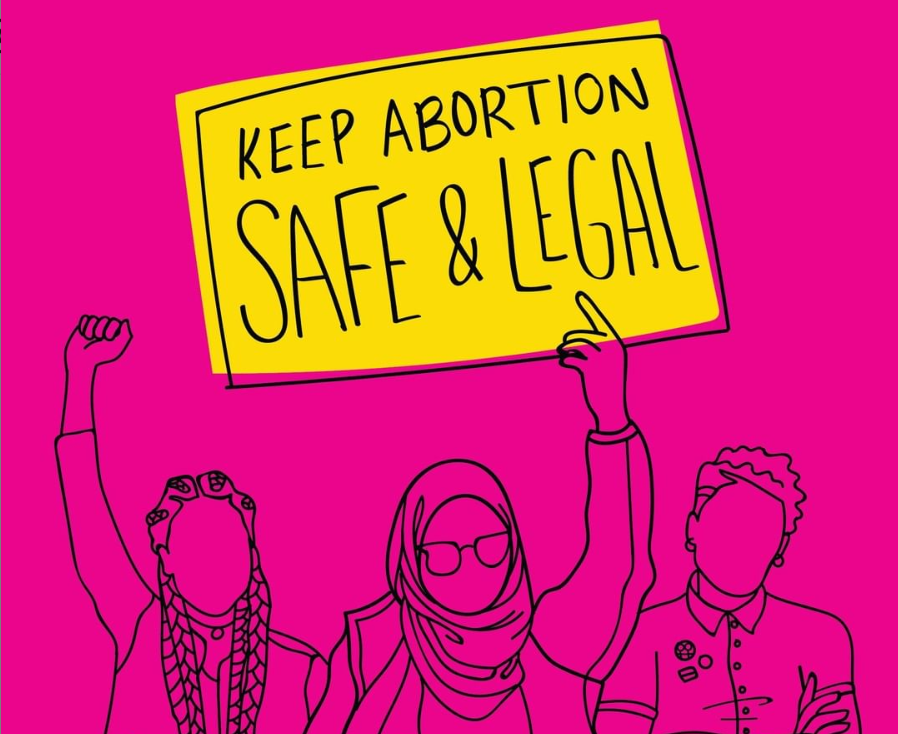In light of the recent viral legislation made to ban access for safe abortions in the south, there is a need to outline the truths behind abortion access and the repercussions of the bans.
In 1973, Roe v. Wade hit the Supreme Court who’s decision allowed abortion to be legalized in all 50 states. Since, according to Amnesty, one in four pregnancies end in abortion worldwide. In 2019, the fight is back on with full force to reverse the ability to access a safe and legal abortion through bills like “heartbeat” bills. Ohio, Kentucky, Georgia, Mississippi and most notably Alabama. According to CNN, Alabama brought about these laws that restrict abortions to be safely accessed after six weeks. Alabama specifically has made it punishable to the patient and the surgeon if an abortion in pursued, even if you leave Alabama. There are no exceptions for rape or incest when it comes to attaining an abortion, either. On top of this list, there are 10 more states looking to pass “heartbeat” bills by the end of the year. The silver-lining is fortunately that these bill may be deemed unenforceable under Roe v Wade, however with the Republican-leaning senate that could send it to supreme court, there is fear that Roe v. Wade will be overturned.
“To the bill’s many supporters, this legislation stands as a powerful testament to Alabamians’ deeply held belief that every life is precious and that every life is a sacred gift from God,” said Alabama Gov. Kay Ivey during the signing of the Alabama Human Life Protection Act, according CNN. Isn’t it fantastic to hear that the protection of the “precious” and “sacred” lives of rapists, incestophiles and pedophiles is alive and well in Alabama with blatant disregard to the country’s founding concept of separation of church and state? No. The fact that a patient has to find a loophole to receive a safe and legal abortion is absurd.
The loophole of performing an at-home pregnancy test, leaving the state to go visit their “Aunt in New York” and have an abortion performed without telling a single soul and by making sure they do not consent to have their medical records shared outside of that clinic is absolute insanity. The life of this patient is not precious or sacred to the state of Alabama. On the same note, this patient must have every right to murder their rapist. They will serve more jail time for getting the abortion than committing premeditated murder. According to CNN, the surgeon or patient could face up to 99-years of prison if the procedure is performed. Two birds, one stone.
Something to keep in mind with these bills is that the reproductive system of those than can be impregnated is, unfortunately, not perfect. At six weeks, the most symptom of pregnancy will be absence of a period. At six weeks, for someone who is not intending to get pregnant, they may conclude a late or skipped period which doesn’t really phase individuals heavily. Women’s Health lists over ten reasons one may have an irregular period, that includes conditions as simple as stress or a side effects of medications. At six weeks and one day, a person may get suspicious and go to their doctor to find out they are pregnant. At that moment, they are no longer eligible for a legal abortion and are required to follow through with the pregnancy unless there are dire and deadly consequences to giving birth. Even if this patient is a 11-year old daughter that was raped by a neighbor and hasn’t had the ability to attend some sort of sexual education at school yet. At the same time, “45-49% of the time they are unplanned” said Dr. Jen Villavicencio, an ob-gyn who lectures at University of Michigan Medicine, according to CNN. The circumstances are unethical without even attending to the discussion if the zygote is a “precious” and “sacred life.”
Criminalizing a life-protecting procedure is absurd. The government is “forc(ing) people to be pregnant against their own consent,” said Alexandria Ocasio-Cortez in a tweet. In comparison, a person is not forced to donate blood or an organ to someone with a life-threatening condition. Even if they are the only genetic match to someone that will die without the donation, they have to give consent first. Why is pregnancy an exception? Why does a person have to complete a pregnancy to save a life, especially when that child will likely be one more forgotten child mixed in with the 443,000 other children in foster care, as seen on childrensrights.org.
In 1973, when Roe v. Wade came into fruition, the Guttmacher Institute (a US-based reproductive health non-profit,) found that, “the number of adoptions rose from 91,000 in 1957 to 175,000 in 1970, then fell to 130,000 by 1975; the decline of the early 1970s coincided with the legalization of abortion.” This shows that the number of stray lives led by children decreased and people that were not ready to bare another life were spared that weight. It does not matter the circumstances of a pregnancy, a person has the right to their own autonomy and without the ability to have a safe and legal abortion, something more dangerous can and will be pursued. Another 2003 finding by the Guttmacher Institute, for pre-Roe v. Wade era, showed that in, “one analysis, extrapolating from data from North Carolina, … an estimated 829,000 illegal or self-induced abortions occurred in 1967.”
When it comes to something as drastic as raising a child for the rest of a lifetime, drastic measures may ensue to prevent it, even if death is at risk. Just as Amnesty precisely states, “Criminalizing abortion does not stop abortions, it just makes abortion less safe.”
[Photo Credit: www.instagram/com/plannedparenthood]


